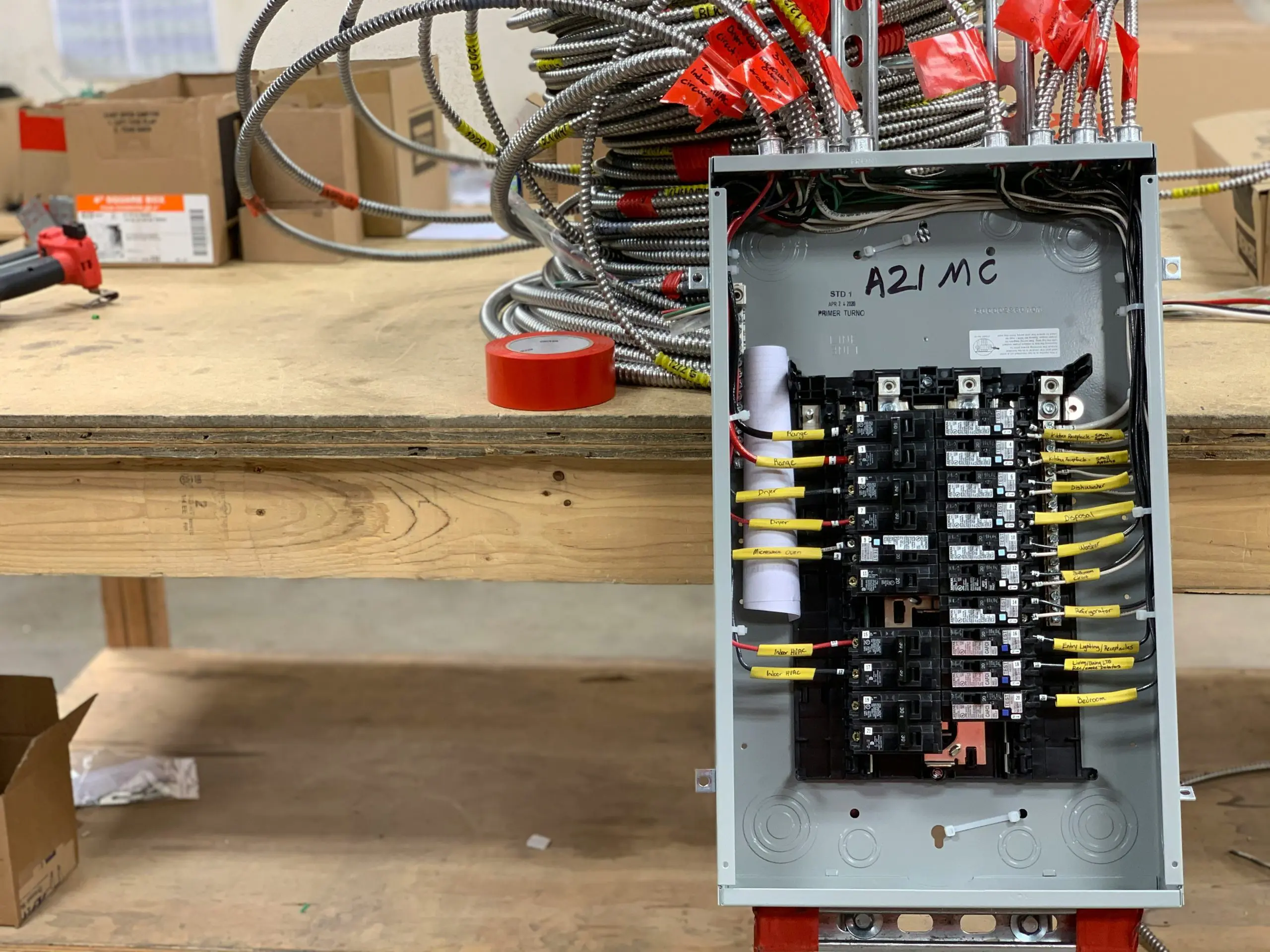Here at Asbury Electric, we get asked a lot of questions about breaker boxes, fuse panels, breaker panels, electrical control panels, and the like. In a home, these are all different names for the same item – an electrical panel. Review our comprehensive guide and understand the basics around your homes electrical panel.
Electrical Panel vs. Power Distribution Panel
The technical term for an electrical control panel is a power distribution panel. Its primary function is to distribute power like the way your heart delivers blood to your body. This is why you’ll hear it called “the heart of your electrical system.” It is crucial to your electrical system that your power distribution panel is healthy and in good working condition.
Finding Your Electrical Panel
Your electrical panel is typically located where the power enters your home from the power company. First, find your electric meter on the outside of your house, and then look inside on the wall that the meter is mounted to. This is where you will find your panel. If you don’t see it, reach out to us, and we will help you find it!
Choosing an Electrical Panel
Over the years, manufacturers have improved the functionality of their products as well as the materials used to construct them. Couple this with increasing safety guidelines and technology, and you’ll find electrical panels are the safest and most reliable they have ever been. The most important part of choosing an electrical paniel is picking a high-quality manufacturer like Square D or Eaton – formerly know as Cutler Hammer.
We recommend installing either one of these two manufacturers because they use the highest quality of materials in the making of their panels. One of these crucial components is an all-copper bus bar.
When to Replace Your Electrical Panel
Electrical panels can last a long time. We typically suggest replacement after 20 to 30 years unless the electrical components of the panel are compromised.
Some tell tale signs of electrical components being compromised include:
- Arching
- Burning
- Corrosion
- Smelling smoke
- Buzzing sounds
Just because you are experiencing one or more of these indicators does not mean you need to replace the whole panel. For example, you may just need to replace a breaker if the bus bar isn’t damaged.
Even if you are not observing any of the signs above, some important questions to ask yourself about your control panel periodically are:
- Are the connections tight and secure?
- Are my electrical breakers healthy?
- Have all the breakers been exercised (turned off and back on) within the last year?
- Are they less than 10 years old?
- Is my electrical panel or breakers up to current safety standards or code?
If you are unsure about any of these answers or are noticing some of the symptoms above, give us a call today and we’ll provide you with expert advice.
Breakers Role in Electric Panels
The switches inside the electrical control panel are called “breakers”. They are called breakers because they break the connection of power to the circuit if they recognize an issue. Breakers were developed to replace the older technology of fuses because they can be reset rather than replaced. If a breaker trips, it usually goes into the trip position which is neither in the off or on position, but a midway point. Most breakers trip because they sense more power is being used that the circuit is rated for. You can try to reset it by turning it all the way off, then back on. If the breaker trips again, please call a professional like us because there is a chance there is a bigger, underlying problem that needs to be diagnosed and repaired.
Electrical Control Panel Basics
All electrical control panels are comprised of these basic components:
- The enclosure or box
- A closable door with a breaker label or schedule
- A main bus bar (what the power travels through before going through the breakers)
- Neutral and Ground bus bar/bars
- Breakers or Fuses or both
How often should I get my Electrical Panel Inspected?
Most homeowners get their electrical panel examined during their electrical home inspection, when they are buying or selling their home. This is required so that dangerous electrical situations are not passed on to a new homeowner unexpectedly.
At Asbury Electric, we recommend a home electrical safety evaluation and maintenance once a year. This involves testing the entire system to ensure it is operating correctly. We confirm that connections are properly secured, breakers have been exercised, and that the system is up to current standards. Additionally, we will replace the batteries in your smoke detectors and caulk around the outside electrical boxes to prevent water from getting into the walls and electrical components.
Why Choose Asbury Electric?
Our goal is to be proactive and identify any potential problems so you do not have to pay more money than necessary when they arise unexpectedly. We have our customers best interests in mind and want to keep the hear of their homes electrical system pumping like it should.
If you have any questions about your electrical control panel or would like us to come out to inspect your electrical system, please, don’t hesitate to call us. We care about you, and we will treat you right!

